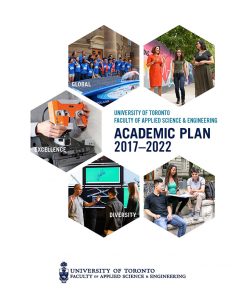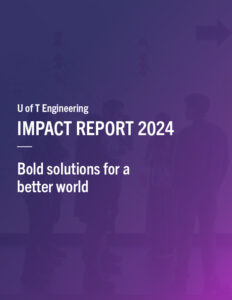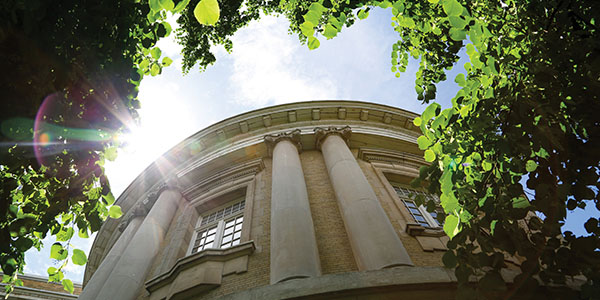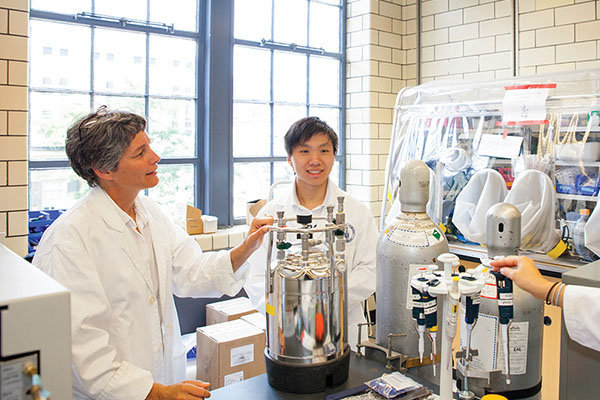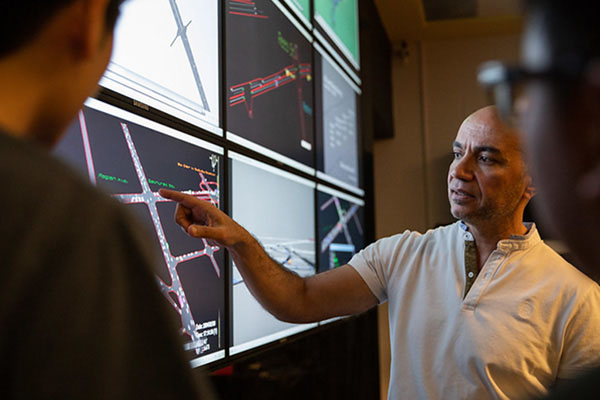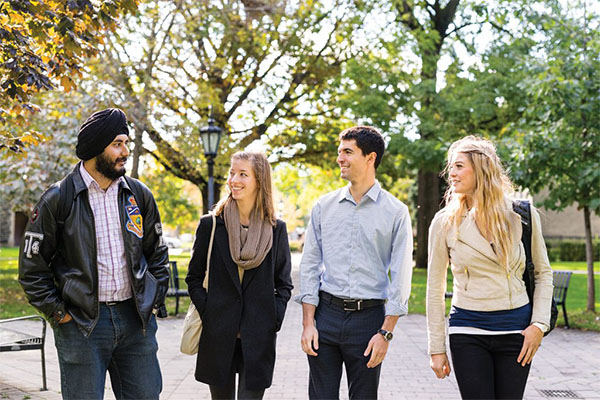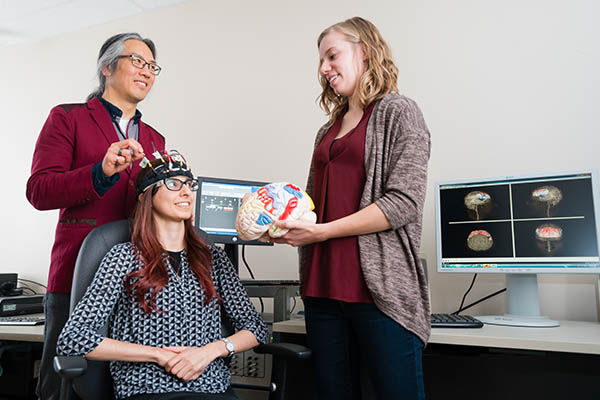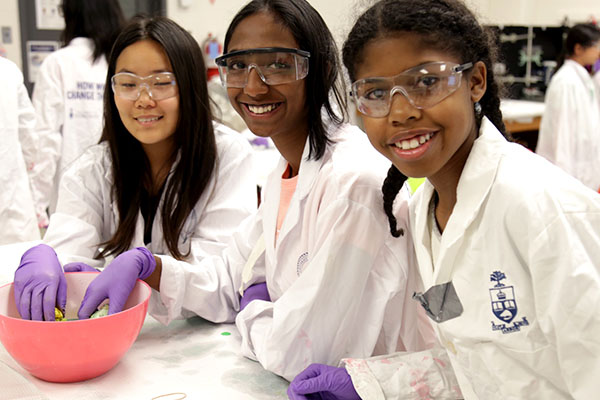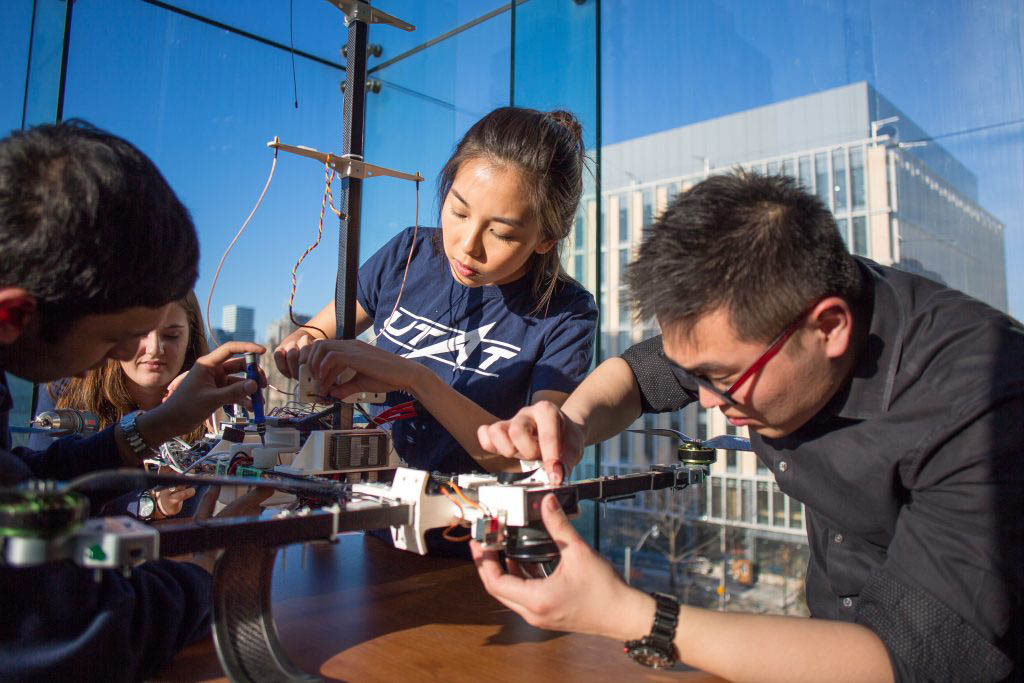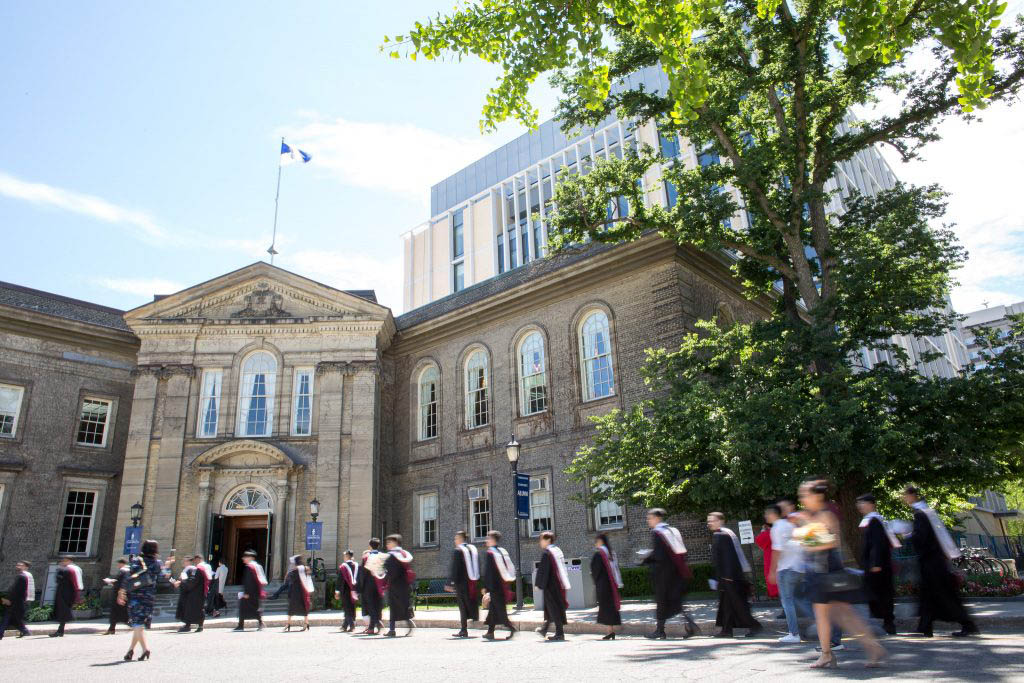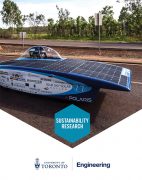Over the last century, technology has enabled standard-of-living improvements around the world. At the same time, thriving cities and growing populations take a toll: lakes, rivers and oceans have become polluted, air quality in major cities is poor and our climate is changing.
U of T Engineering researchers are at the forefront of sustainable alternative technologies that can mitigate these impacts. We are creating new ways to harvest energy from the sun and wind, and efficiently store it. We are developing cleaner, more efficient engines that can run on biofuels without compromising safety or reliability. And we are designing better ways to move people through cities in order to make our urban environments more livable.
Together with industrial partners in diverse sectors, our leading-edge research is helping companies make better use of resources and enabling access to new technologies for a cleaner, greener and more sustainable future.
RESEARCH CENTRES & INSTITUTES
-
2015: Centre for Power and Information (CPI)
CPI is building the power grid of tomorrow. It includes experts in smart grids and focuses on issues such as the integration of renewable power, cyber security and demand response. Learn more about CPI.
-
2013: Centre for Research in Sustainable Aviation (CRSA)
CRSA equips scientists and engineers with the interdisciplinary competencies required to develop future generations of environmentally sustainable aircraft. It includes experts in aerodynamics, propulsion, biofuels, life-cycle assessment and aviation policy. Learn more about the CRSA.
-
2013: Institute for Sustainable Energy (ISE)
ISE brings together more than 50 principal investigators from U of T Engineering and the Faculty of Arts & Science to advance solutions in technologies including wind turbines, solar power, fuel cells and hydroelectricity.
-
2011: BioZone
BioZone leverages recent advances in molecular biology and genomics to address engineering challenges in a number of sectors, including environmental bioremediation, energy and human health. Solutions include enriched microbial cultures that can degrade hazardous compounds, bio-derived fuels and other commodity chemicals, and large-scale production of protein-based medical products. Learn more about BioZone.
-
2009: Centre for Global Engineering (CGEN)
Through courses, co-curricular activities and research, CGEN facilitates creative solutions to global challenges in sanitation, alternative energy, health care and clean water. Learn more about CGEN.
EXPERTISE
Selected areas of expertise in sustainability research at U of T Engineering
- Alternative Fuels
- Carbon Management
- Combustion
- Emissions Reduction
- Energy Policy
- Energy Storage
- Infrastructure Management
- Life Cycle Assessment
- Smart Grid
- Sustainable Aviation
- Sustainable Energy
- Transportation
- Urban Development
RESEARCH IMPACT
Cleaner energy through hydrogen
Solar and wind installations provide clean power, but storing that energy for days when conditions are cloudy with no wind is still a major challenge. One solution is to use electrolyzers, which take renewable electricity and use it to split water into hydrogen and oxygen gas. The hydrogen can later be used in a fuel cell that reverses the process, recombining H2 and O2 to produce electricity and water.
Mechanical engineering professor AIMY BAZYLAK (middle) holds the Canada Research Chair in Thermofluidics for Clean Energy, and leads a team of experts specializing in polymer electrolyte membrane (PEM) fuel cells and electrolyzers. By designing new materials and formulations for electrochemical energy conversion, Bazylak and her team are improving the efficiency and reliability of fuel cells and electrolyzers while keeping costs low. Better electrolyzers and fuel cells could enable efficient, long-term storage of renewable power.
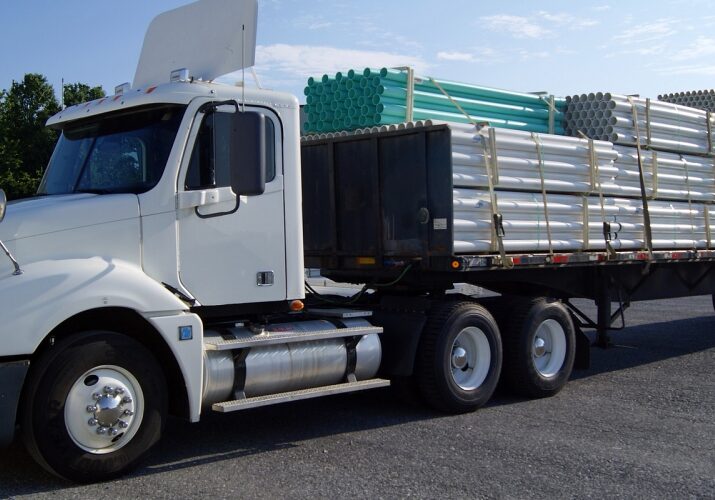
Smarter delivery: Better economy, cleaner environment
Delivering goods in a busy city has always been a challenge. But as online retailers come to dominate more of global market share, the pressure to have items delivered within a day or even a few hours is higher than ever before. This has a real impact on the number of trucks on the road, leading to traffic congestion and higher emissions in urban areas.
Professor MATT ROORDA holds the Canada Research Chair in Freight Transportation and Logistics, and is the lead U of T Engineering researcher on the Smart Freight Centre (SFC). This collaborative network aims to improve the movement of goods across the Greater Golden Horseshoe Area. Partners include McMaster University, York University and the Region of Peel.
In the summer of 2019, SFC conducted a pilot study in which industry partners Walmart, Loblaws and LCBO stores shifted key deliveries from daytime hours to the early morning (before 7 a.m.) and late evening (between 7 and 11 p.m). Roorda and his team found that the shift increased the average speed of trucks by 18%, with associated reductions in key air pollutants of between 10% and 15%.
More research is needed, but the pilot study suggests that there is a lot of spare capacity on roadways at certain times of day, and that taking advantage of it could have tangible benefits to both the economy and the environment.Over half the world’s population now lives in cities. By centralizing resources, urbanization has the potential to greatly reduce per capita environmental impact. But it can also lead to gridlock, air pollution and other challenges that threaten our health.
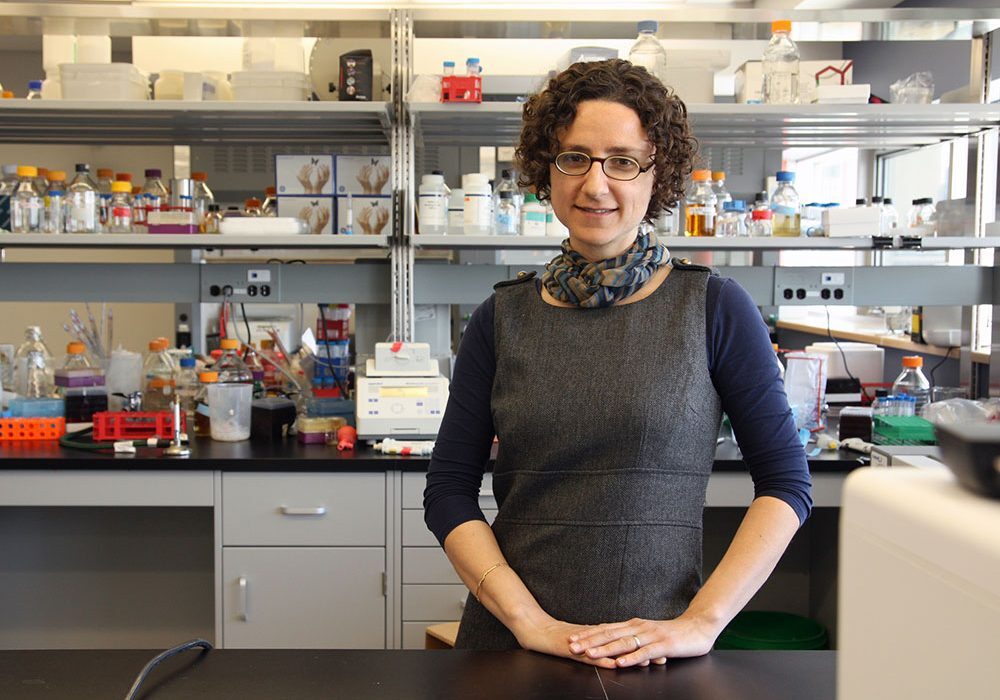
From plants to plastics
In Canada, the forest is our largest bio-based feedstock. Yet despite the increasing demand for greener materials and the abundance of this renewable resource, many of the products we use on a daily basis are still made from non-renewable fossil fuels. Even for paper products, only a tiny fraction of the raw wood material makes it into the final product.
Designing reproducible and cost-effective processes for transforming wood into marketable products is technically challenging. Hemicellulose and lignin — which together make up more than half of the wood in a tree — are usually wasted, burned for power generation or discarded. Chemical engineering professor EMMA MASTER is leading a national Genome Canada initiative called SYNBIOMICS aimed at developing processes to create value-added products from this underutilized forest biomass.
Master and her colleagues are designing biocatalysts to upgrade rather than degrade cellulose, hemicellulose and lignin. Upgrading bypasses the challenges involved in breaking down these structures and builds on the unique qualities of each polymer for targeted applications. These applications include resins, coatings, bioplastics and adhesives for lightweight biocomposites. Working with several industry partners across the value-chain such as Canfor and Dupont, SYNBIOMICS aims to meet the precise specifications and consistency the market requires while reducing reliance on fossil fuels and revitalizing Canada’s forestry sector.
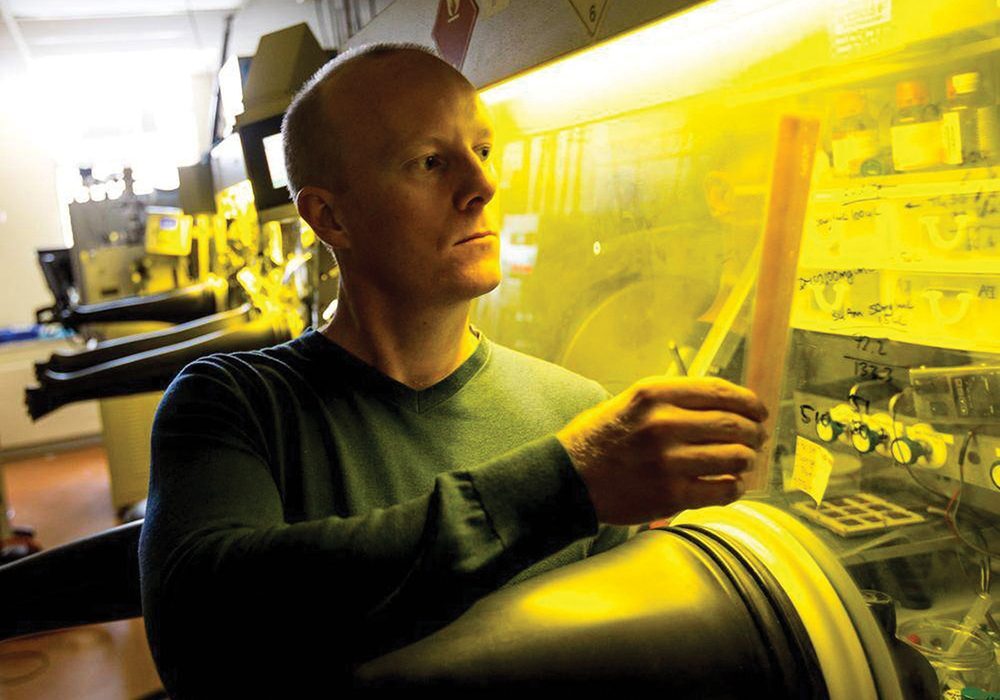
Spray-on solar power
Today, virtually all commercial solar cells are made from thin slices of crystalline silicon which must be processed to a very high purity. It’s an energy-intensive process, requiring temperatures higher than 1,000 degrees Celsius and large volumes of hazardous solvents.
However, silicon isn’t the only path to solar power. Electrical and computer engineering professor TED SARGENT, Canada Research Chair in Nanotechnology, and his team are working on alternative technologies, from perovskite crystals to nanoparticles known as quantum dots. Both of these technologies enable the active ingredient to be mixed into a liquid, creating a kind of “solar ink.” Eventually, this material could be sprayed onto surfaces such as urban rooftops or used in traditional inkjet printing equipment to create solar cells at a fraction of current costs.
The team has also demonstrated the ability to combine a layer of quantum dots with a traditional silicon photovoltaic cell, creating a tandem device that harvests more of the solar spectrum than silicon alone. Sargent and his collaborators founded a spinoff company, QD Solar, to commercialize this technology. Their customers include leading solar manufacturers who want to give their products a boost at minimal cost.

“Every day our students are taking intellectual risks and asking exciting questions in sustainability. What I love is connecting those minds with companies who have an interesting idea, and helping them realize their visions together.”
PROFESSOR AIMY BAZYLAK
Canada Research Chair in Thermofluidics for Clean Energy
THE FUTURE OF SUSTAINABILITY
Farming algae for food and fuel
Algae are among the fastest-growing photosynthetic organisms on the planet. Like plants, they absorb climate-warming CO2 as well as nitrogen and phosphorus, which are often present in wastewater. Some species can accumulate fats and oils that could be turned into biofuels and biochemicals; others produce nutritious molecules that make them useful for fish feed, animal feed or even human health supplements.
Professors GRANT ALLEN in Chemical Engineering and STEWART AITCHISON in Electrical and Computer Engineering are working together to see if algae grown on an industrial scale could clean wastewater, reduce air emissions and produce value-added products simultaneously. They have developed an efficient tool to pipe light into algae biofilms, and are collaborating with partners such as the National Research Council, Pond Biofuels, Biox Corp and Mara Renewables to develop new applications for algae in sectors such as carbon capture, nutraceuticals and biofuels.
Blue skies ahead
Every day, commercial flights burn over 100,000 litres of fuel, leading to significant harmful carbon dioxide emissions. Aerospace engineering professor DAVID ZINGG is the U of T Distinguished Professor of Computational Aerodynamics and Sustainable Aviation, and the founding director of the Centre for Research in Sustainable Aviation. In partnership with major aircraft manufacturers such as Bombardier and Airbus, Zingg and his colleagues are investigating novel aircraft configurations, stronger and lighter materials, and friction-reducing actuators to substantially improve aircraft fuel efficiency.
Clean combustion
Whether it’s gasoline, diesel or jet fuel, combustion powers our society. Yet it also contributes to climate change and generates other emissions that impact local air quality.
Mechanical engineering professor MURRAY THOMSON is the director of the NSERC Collaborative Research and Training Experience (CREATE) program in Clean Combustion Engines, a national network that includes industry partners such as Ford, Rolls-Royce and Pratt & Whitney. Together, Thomson and his collaborators are training a new generation of combustion experts who will redesign engines to lower emissions, improve fuel efficiency and enable the adoption of biofuels. The program includes an intensive Combustion Summer School as well as opportunities for students to take on internships with partner companies.
SPECIALIZED EDUCATIONAL OFFERINGS IN SUSTAINABILITY
Our Master of Engineering students can choose from technical specializations in Advanced Water Technologies, Sustainable Energy and Sustainable Aviation, where they access the expertise of our world-class professors and contribute to leading-edge research in these important areas. At the undergraduate level, students can pursue minors in Sustainable Energy and Environmental Engineering, and Engineering Science students can major in Energy Systems Engineering.
LATEST SUSTAINABILITY STORIES
OUR INNOVATION CLUSTERS
U of T Engineering has the breadth and depth of research excellence as well as the capacity to effect global change across these key domains.
OUR EXPERTS
Find the U of T Engineering researchers with the expertise to solve your most complex challenges

LEADING INNOVATION STARTS HERE
DOWNLOAD PDF
Connect with us to discuss how a partnership with U of T Engineering can benefit your organization.

